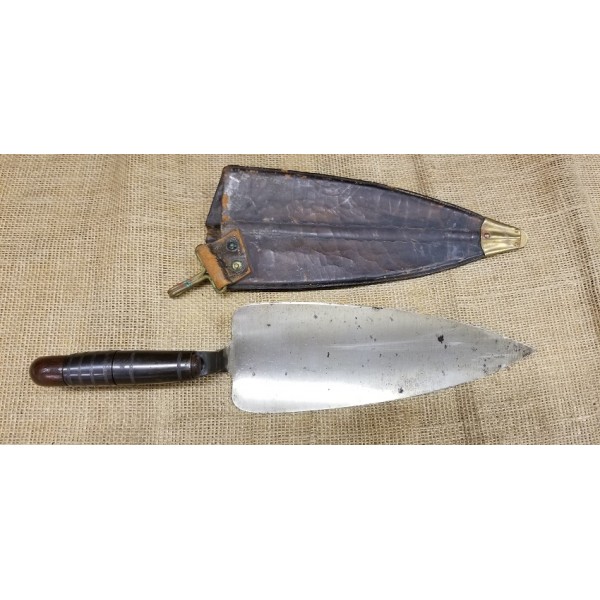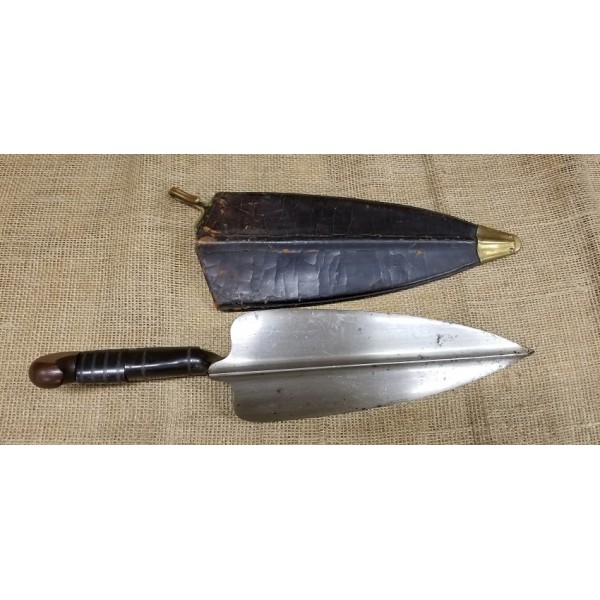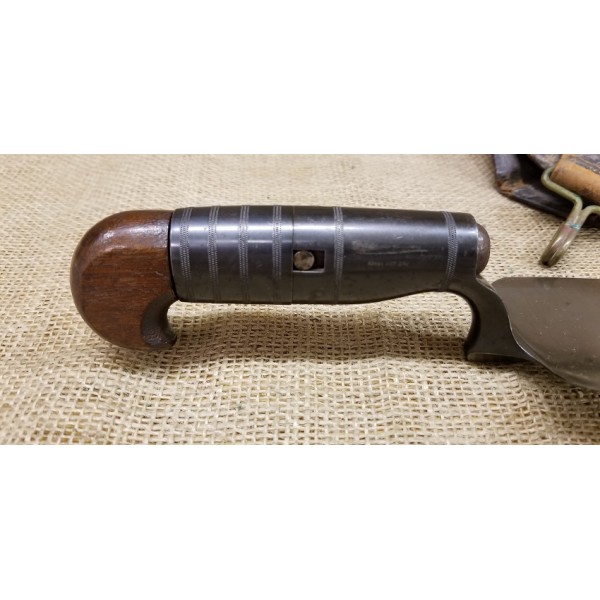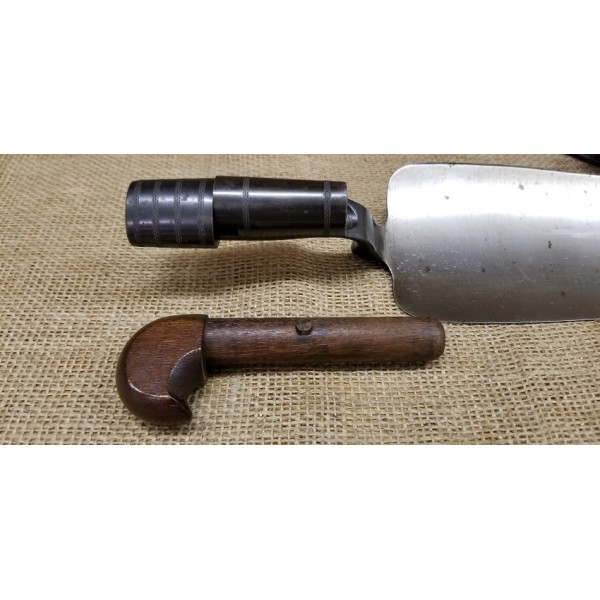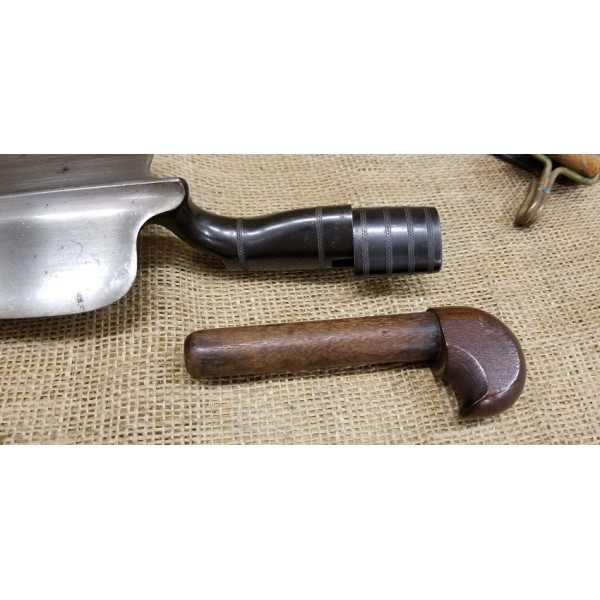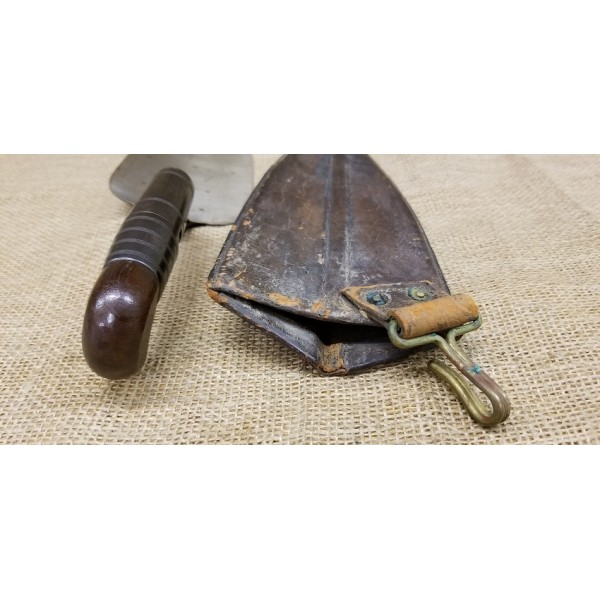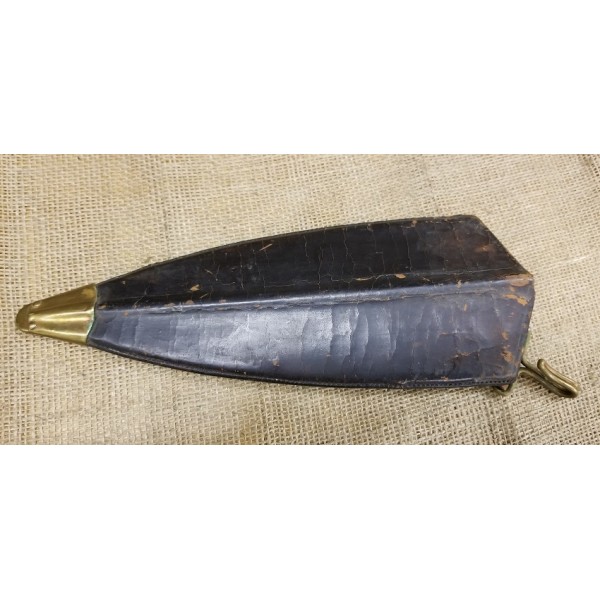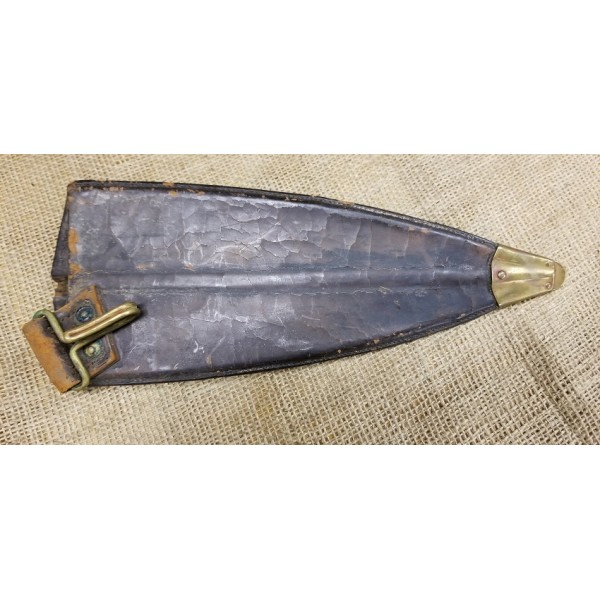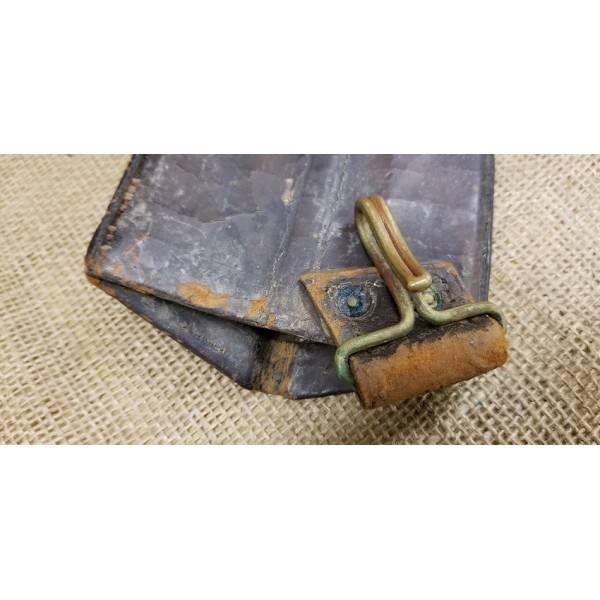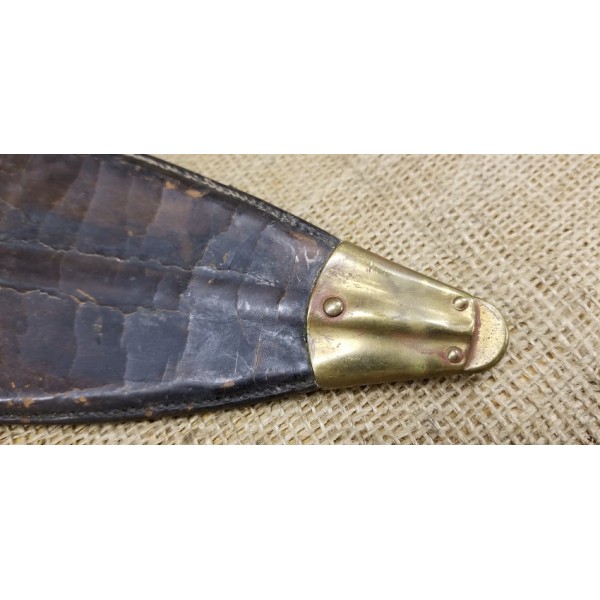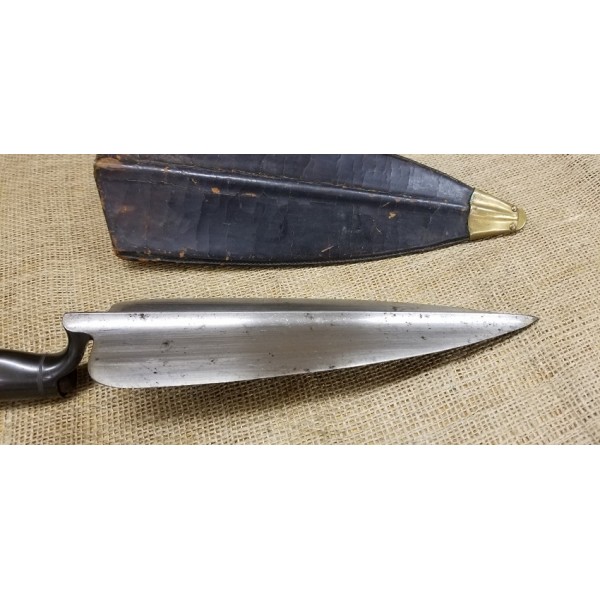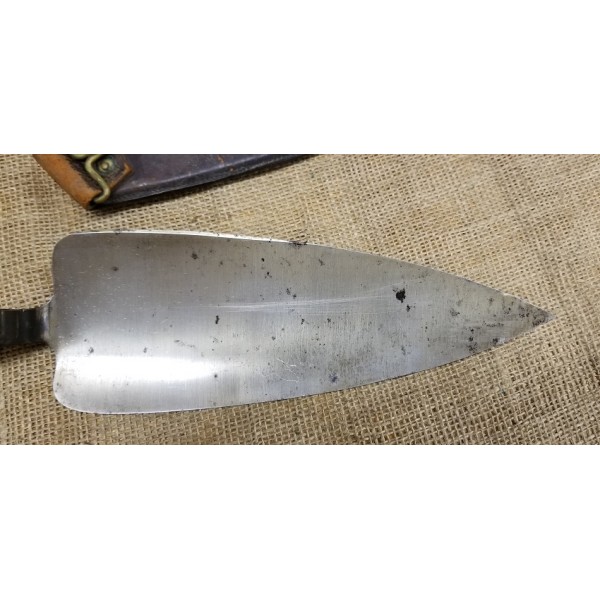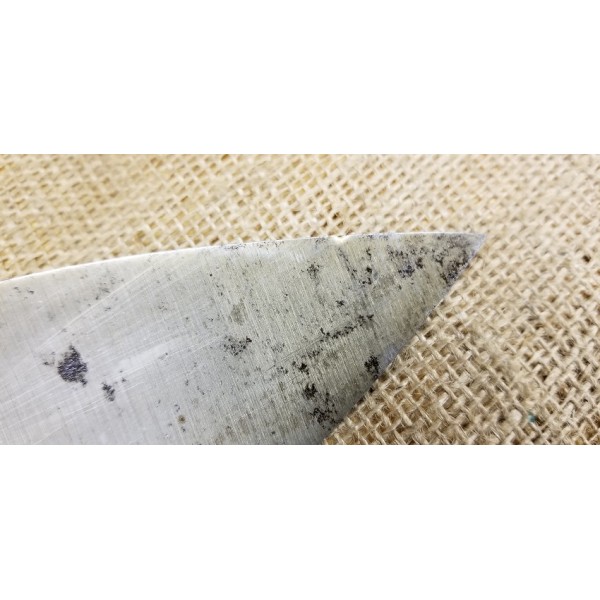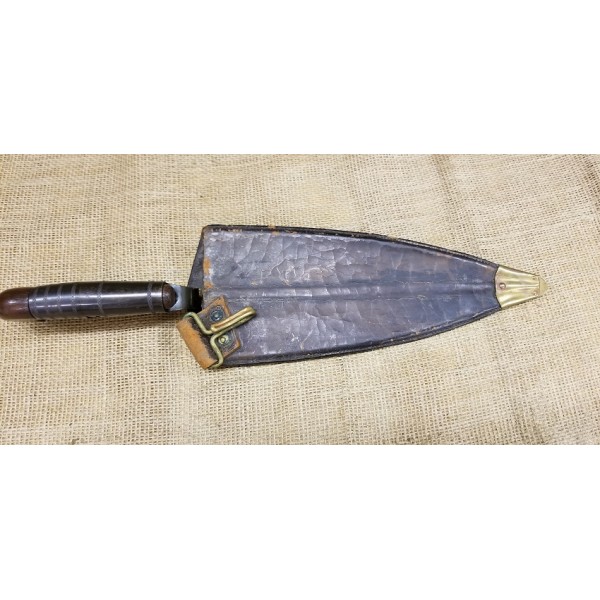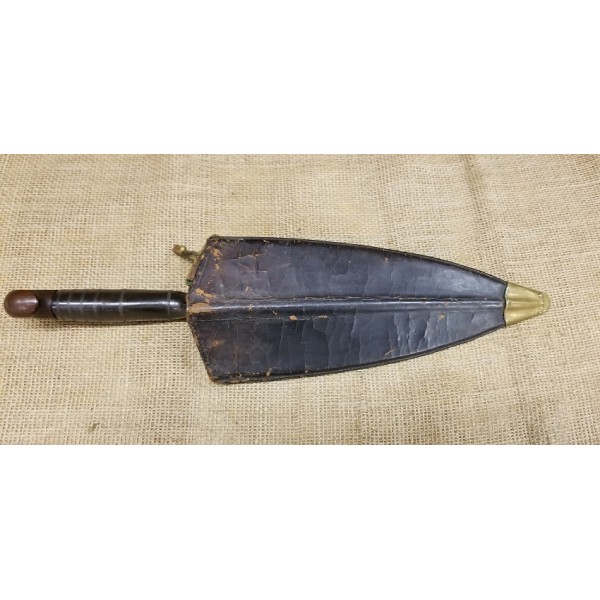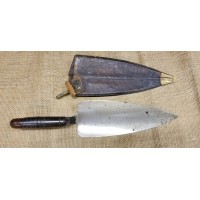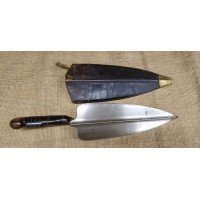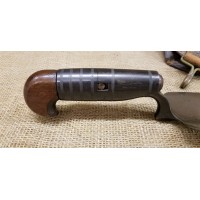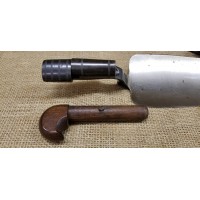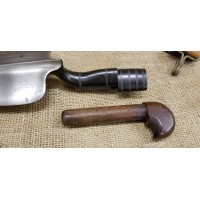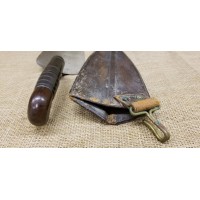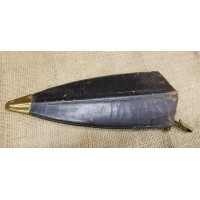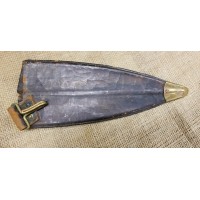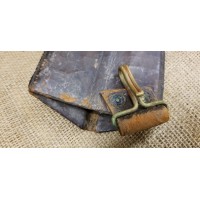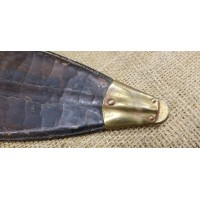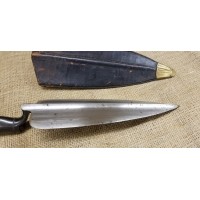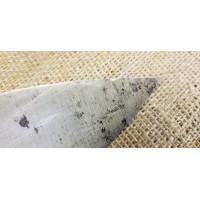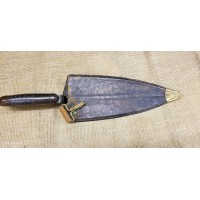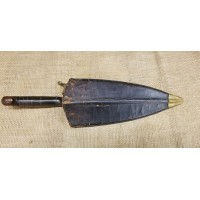U.S. Model 1873 Rice-Chillingworth Trowel Bayonet
SOLD - $695 - Model 1873 Trowel Bayonet with No. 2 Scabbard
Made by Springfield Armory
Polished blade is 9 7/8 inches long, 3 1/2 inches wide
Fits the 45/70 Trapdoor Rifle
Original Walnut Chillingworth handle
No. 2 Leather Scabbard stitching and metal is tight
Leather is cracking and in need of conditioning
Taken from Worldbayonets.com: Socket bayonet for use on the .45–70 Caliber U.S. Rifle M1873 (Trapdoor Springfield).
The trowel bayonet was conceived to provide soldiers with a dual-purpose bayonet and entrenching tool. Following the U.S. Civil War, the conventional wisdom in the Army was that the bayonet was largely unnecessary and that soldiers should be individually-equipped to rapidly entrench without the need to bring entrenching tools forward by wagon.
The trowel bayonet was proposed by Lt. Edmund Rice in 1868. 200 of his initial design was trialed by the U.S. Engineers, followed by more extensive trials with 500 of an improved design carried out in the West by the 3rd and 5th Infantry Regiments. While the blade was an effective tool, the M1855-style socket made for a very uncomfortable hand grip, resulting in rapid fatigue.
The M1873 design incorporated an ingenious contoured, rotating socket/hand grip patented by Springfield Armory pattern maker Ira Merrill and saddler/inspector Felix Chillingworth. Chillingworth also developed the walnut haft that could be inserted into the socket. The haft increased the soldier’s leverage when digging and reduced the temptation to dig with the bayonet fixed (which was forbidden, as it could bend the rifle barrel or split the stock).
Trials were overseen by the Board of Breech-Loading Small Arms chaired by Gen. Alfred Terry (Terry Board). Although opinion from the field was mixed, a significant majority preferred the trowel bayonet. In 1873, the Board recommended, and Army Command approved, a trial issue to infantry across the Army. This led to limited production of the M1873 Trowel Bayonet, with 10,000 being produced at Springfield Armory during 1874–75.

